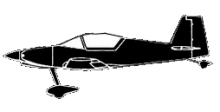
ASN Wikibase Occurrence # 232300
This information is added by users of ASN. Neither ASN nor the Flight Safety Foundation are responsible for the completeness or correctness of this information.
If you feel this information is incomplete or incorrect, you can submit corrected information.
| Date: | Tuesday 24 December 2019 |
| Time: | 14:15 LT |
| Type: |  Team Rocket F1 |
| Owner/operator: | Mike Scott Aviation LLC |
| Registration: | N230BW |
| MSN: | 01 |
| Year of manufacture: | 2009 |
| Total airframe hrs: | 407 hours |
| Engine model: | Lycoming IO-540 |
| Fatalities: | Fatalities: 0 / Occupants: 2 |
| Aircraft damage: | Substantial |
| Category: | Accident |
| Location: | Hampton Roads Executive Airport (KPVG), Norfolk, VA -
 United States of America United States of America
|
| Phase: | Landing |
| Nature: | Private |
| Departure airport: | Suffolk Executive Airport, VA (KSFQ) |
| Norfolk-Hampton Roads Executive Airport, VA (KPVG) | |
| Investigating agency: | NTSB |
| Confidence Rating: |
The pilot and pilot-rated passenger were performing aerobatic maneuvers in the experimental amateur-built airplane. After the pilot had performed several aileron rolls, barrel rolls, and wing overs, the pilot-rated passenger in the aft seat attempted to conduct a barrel roll. Data from onboard avionics indicated that, during the descending portion of the roll, the airplane reached a 9,166 ft-per-minute rate of descent at an airspeed of 238 knots, 2 knots below the airplane's never-exceed speed (Vne). The pilots then heard a loud noise and felt a buffet in the aft flight controls, and reported limited pitch control movement. The airplane subsequently experienced a negative G-load and an decrease in pitch attitude. The pilot attempted to recover from this rapid descent, during which the airplane reached an airspeed of 240.5 knots and a 3.68g-load. The pilot was able to recover at 455 ft mean sea level and return to the airport and land.
Postaccident examination of the airplane revealed that the right horizontal stabilizer forward of the aft spar was missing and the elevator assembly remained attached. The left horizontal stabilizer and associated elevator assembly was bent downward but remained attached and operable. The upper and lower straps on the forward spar only had four rivets each including the one at the closeout rib, but, according to kit manufacturer's specifications, there should have been five rivets each. This likely lowered the structural integrity of the stabilizer and contributed to the structural failure but was likely not the primary cause.
Although flutter was reported by both pilots and could not be ruled out, the damage to the horizontal stabilizer was consistent with its failure due to aerodynamic overload during aerobatic maneuvers near the airplane's Vne.
Probable Cause: A structural failure of the horizontal stabilizer during aerobatic maneuvers near the airplane's never-exceed speed. Contributing to the failure was the construction of the horizontal stabilizer that did not meet the kit manufacturer's specifications.
Accident investigation:
 |
|
Sources:
NTSB ERA20LA080
Location
Revision history:
| Date/time | Contributor | Updates |
|---|---|---|
| 21-Jan-2020 21:04 | Captain Adam | Added |
| 01-Jul-2022 14:48 | ASN Update Bot | Updated [Time, Total occupants, Other fatalities, Departure airport, Destination airport, Source, Damage, Narrative, Category, Accident report] |
| 01-Jul-2022 14:51 | harro | Updated [Other fatalities, Departure airport, Destination airport, Narrative] |
Corrections or additions? ... Edit this accident description
The Aviation Safety Network is an exclusive service provided by:


 ©2024 Flight Safety Foundation
©2024 Flight Safety Foundation